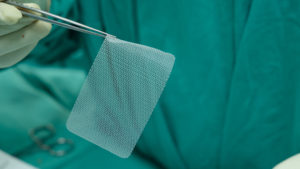 Gregory Dumanian, M.D., pioneered mesh abdominoplasty for patients with incisional hernias and severe rectus diastasis. This procedure involves reinforcing the abdominal wall with permanent mesh and removing excess skin at the same time. Here, Dr. Dumanian describes what makes mesh abdominoplasty preferable for many patients.
Gregory Dumanian, M.D., pioneered mesh abdominoplasty for patients with incisional hernias and severe rectus diastasis. This procedure involves reinforcing the abdominal wall with permanent mesh and removing excess skin at the same time. Here, Dr. Dumanian describes what makes mesh abdominoplasty preferable for many patients.
Rectus Diastasis Treatment
Mesh abdominoplasty isn’t used just for hernias. It can also be used to treat severe rectus diastasis. Rectus diastasis is the separation of the rectus abdominis muscle. Rectus diastasis is commonly caused by pregnancy. However, it can also occur in older men in the upper abdomen. Rectus diastasis is the condition where the “six-pack” muscles move away from each other, and stretch the tissue between them to a measurement of greater than 3 cm. There is no medical risk of rectus diastasis, but some people experience discomfort and pain in the stretched tissue. Some people develop back pain from a loss of core abdominal muscle support. Rectus diastasis can also be linked to both umbilical hernias and epigastric hernias. Repair of these two types of hernias sometimes requires the simultaneous repair of the rectus diastasis.
Dr. Dumanian is a pioneer in the use of mesh abdominoplasty for rectus diastasis in women and men. Several of his articles on this procedure are available to be seen on the landing page of drudumanian.com, and there is a photo gallery of patients who have undergone this procedure. Mesh abdominoplasty is preferable for many patients suffering from rectus diastasis. The use of a mesh helps to reinforce the abdomen while also reducing the recurrence of bulging. One downside is the extra healing and early abdominal wall pain from performing the procedure. Use of mesh lengthens the recovery after abdominoplasty by 2-3 weeks, so it is not for everyone!
Hernia Treatment
A hernia occurs when an organ or tissue bulges out. One of the most common types of hernia, the abdominal hernia, occurs when an organ or tissues bulge out of the abdominal wall. Keep in mind that the abdominal wall has a number of functions, including holding in the intestines, stomach and liver. When a hernia develops, it means that the abdominal wall is no longer keeping everything contained.
A hernia will not get better on its own. If left untreated, a hernia may grow larger and become increasingly more painful.
In most instances the only treatment for a hernia is surgery. If surgery is necessary, then a mesh material may be used to reinforce the abdominal wall. Dr. Dumanian is a leading authority on the use of meshes for reinforcement of the abdominal wall. Utilizing a mesh has allowed Dr. Dumanian to lower hernia recurrence rates to near zero for his patients. While no technique is without risks, Dr. Dumanian has found that tailoring the skin at the time of hernia repair has many benefits, with risks very similar to just fixing the hernia without the extra skin work. Removal of extra skin is a cosmetic procedure and one that is not covered by insurance companies.
Contact Dr. Dumanian Today
Dr. Dumanian is specially trained in abdominal wall reconstruction. If you are suffering from a hernia, contact Dr. Dumanian at Northwestern Plastic Surgery by calling 312-695-6022.

